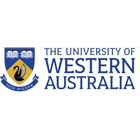Master of Physics
Master of Physics
This course is about understanding the world around us at its most fundamental level. The knowledge generated through the study of physics is also the driving force behind most new technologies, from radars to lasers, from transistors to quantum computers, and from electron microscopes to advanced medical imaging scanners. You…
Categories
COURSE DESCRIPTION
This course is about understanding the world around us at its most fundamental level. The knowledge generated through the study of physics is also the driving force behind most new technologies, from radars to lasers, from transistors to quantum computers, and from electron microscopes to advanced medical imaging scanners.
You will develop a combination of high-level research, analytical and problem-solving skills which are highly valued by industry and government employers.
You’ll learn to
understand and apply the fundamental laws and principles of physics
review the scientific literature in your field of study
gain the mathematical and computational skills required to interpret models of physical behaviour
plan, execute and report the results of an experiment in a research environment
gain the skills required to apply theoretical knowledge of physical principles and mathematical techniques to practical problems
Course structure
Postgraduate coursework degrees and combined (coursework and research) degrees comprise a number of units.
Why study this course?
Specialise in one of 5 areas of physics, Astronomy and Astrophysics, Computational physics, Experimental physics, Medical physics, Theoretical physics
Complete a research project with an internationally recognised research group, giving invaluable experience and helping to develop networks
Many opportunities during the course for interaction with industry, allowing students to understand where their degree can take them
SPECIALISATION
Astronomy & Astrophysics
Program objectives:
Astrophysics is focused on the study of the physical nature of stars and other celestial bodies, and on the application of the laws and theories of physics to the interpretation of astronomical observations. Through hands-on training and exposure to research you’ll gain the skills and knowledge to launch your career in international astronomy.
Computational Physics
Program objectives:
Broadly speaking, physics research is exploration at the forefronts of science. We aim at a deep and fundamental understanding, based on first principles of physics, of systems at the smallest scale, or at the largest scale, or with an extremely high degree of complexity. Computational Physics deals with complex systems that cannot be solved exactly and analytically.
Experimental Physics
Program objectives:
Ultimately, the correct physical laws of the Universe are determined by cleverly designed experiments. You’ll take on the challenge of developing and performing experiments to solve unique scientific and technological problems posed by modern physics.
Medical Physics
Program objectives:
Gain the strong scientific expertise and understanding of medical physics concepts required for a career as a medical physicist in Australia/New Zealand with our Medical Physics specialisation.
Career Pathways
This course is about understanding the world around us at its most fundamental level. The knowledge generated through the study of physics is also the driving force behind most new technologies, from radars to lasers, from transistors to quantum computers, and from electron microscopes to advanced medical imaging scanners. In addition to a career as a research scientist or educator, previous graduates from the School of Physics have had highly successful careers in finance, management, geophysics and the information technology sector.
Further Study
Students completing this degree may have the option to pursue further studies in research.
REQUIREMENTS
To be considered for admission to this course an applicant must have—(a)(i) a bachelor’s degree in physics, or an equivalent qualification, as recognised by UWA; and(ii) the equivalent of a UWA weighted average mark of at least 65 per cent; or(b) an honours degree in physics, or an equivalent qualification, as recognised by UWA.
English language requirements:
TOEFL (paper-based): 570 with a Test of Written English (TWE) of no less than 4.5
IBT TOEFL (Internet-based test score): 82 with 22 for writing, 20 for speaking, 20 for listening, and 18 for reading
IELTS (Academic): 6.5 (no band lower than 6.0)
Cambridge Certificate of Proficiency in English: C pass
Cambridge Certificate in Advanced English: B grade
Pearson Test of English (PTE) (Academic): Overall score of 64 with a minimum score of 64 in the Reading and Writing sections, 59 in the Speaking section and 54 in the Listening section
EDUCATIONAL INSTITUTION
The University of Western Australia (UWA) is a proud member of the Group of Eight and is the only university in Western Australia to be ranked in the world top 100 universities (QS World University Rankings 2023).UWA’s main campus is located in Perth, Western Australia and is home to more than 23,000 students. Perth is Australia’s fourth-largest city with over two million people from a variety of cultures worldwide, a strong economy and vibrant lifestyle. Perth is one of the country’s most affordable cities, the closest major Australian city to Asia, and in the same time zone as most of Asia.

